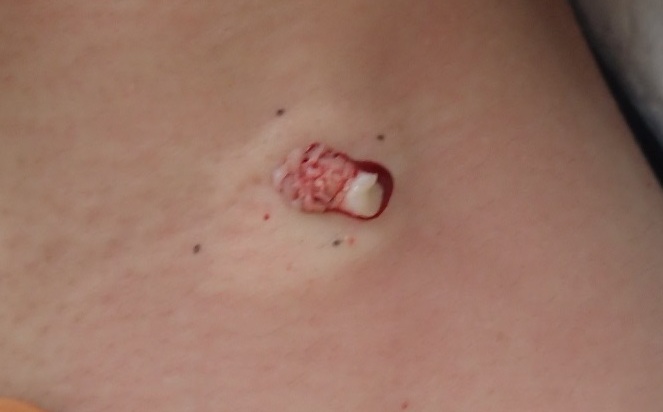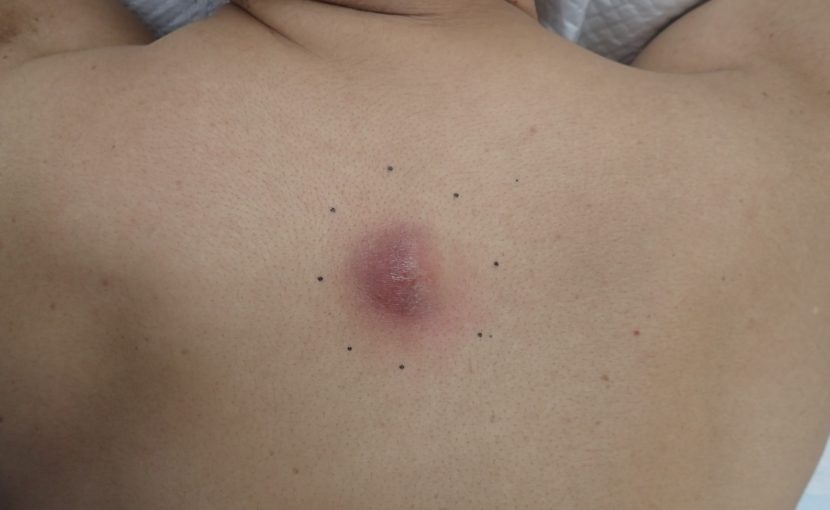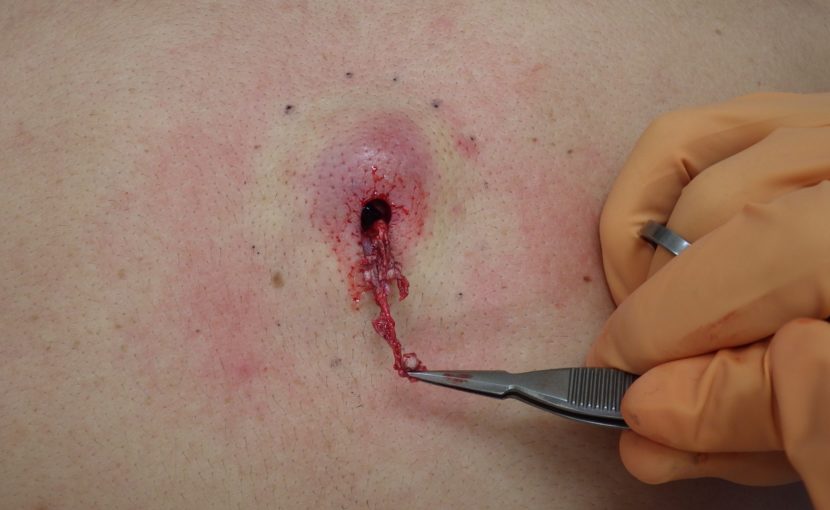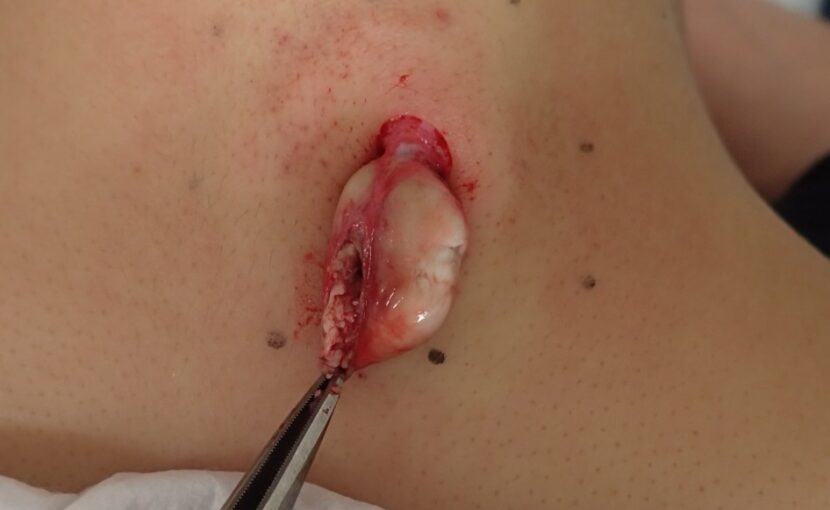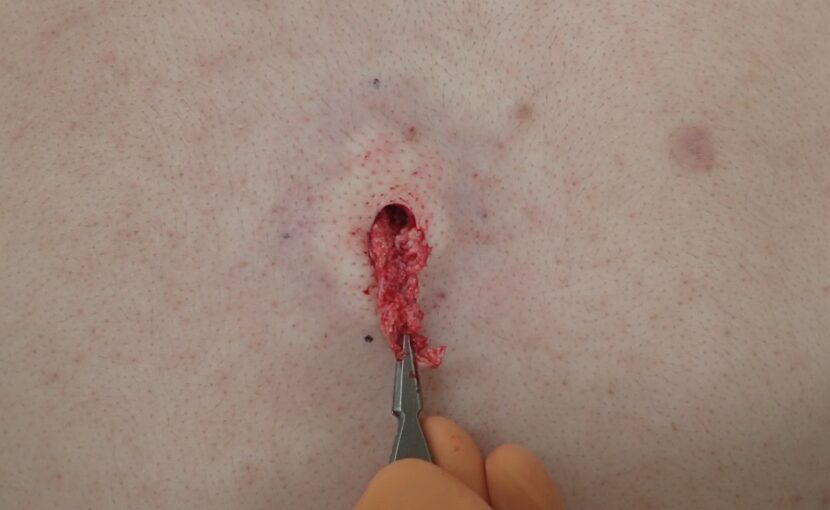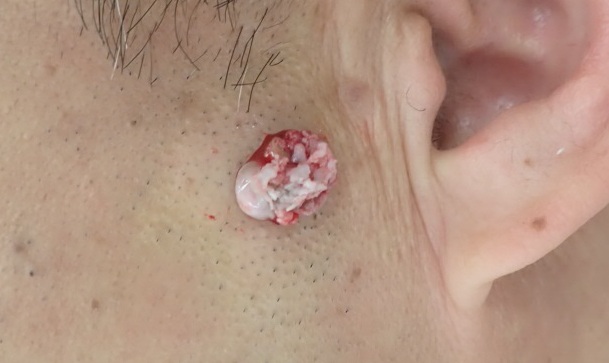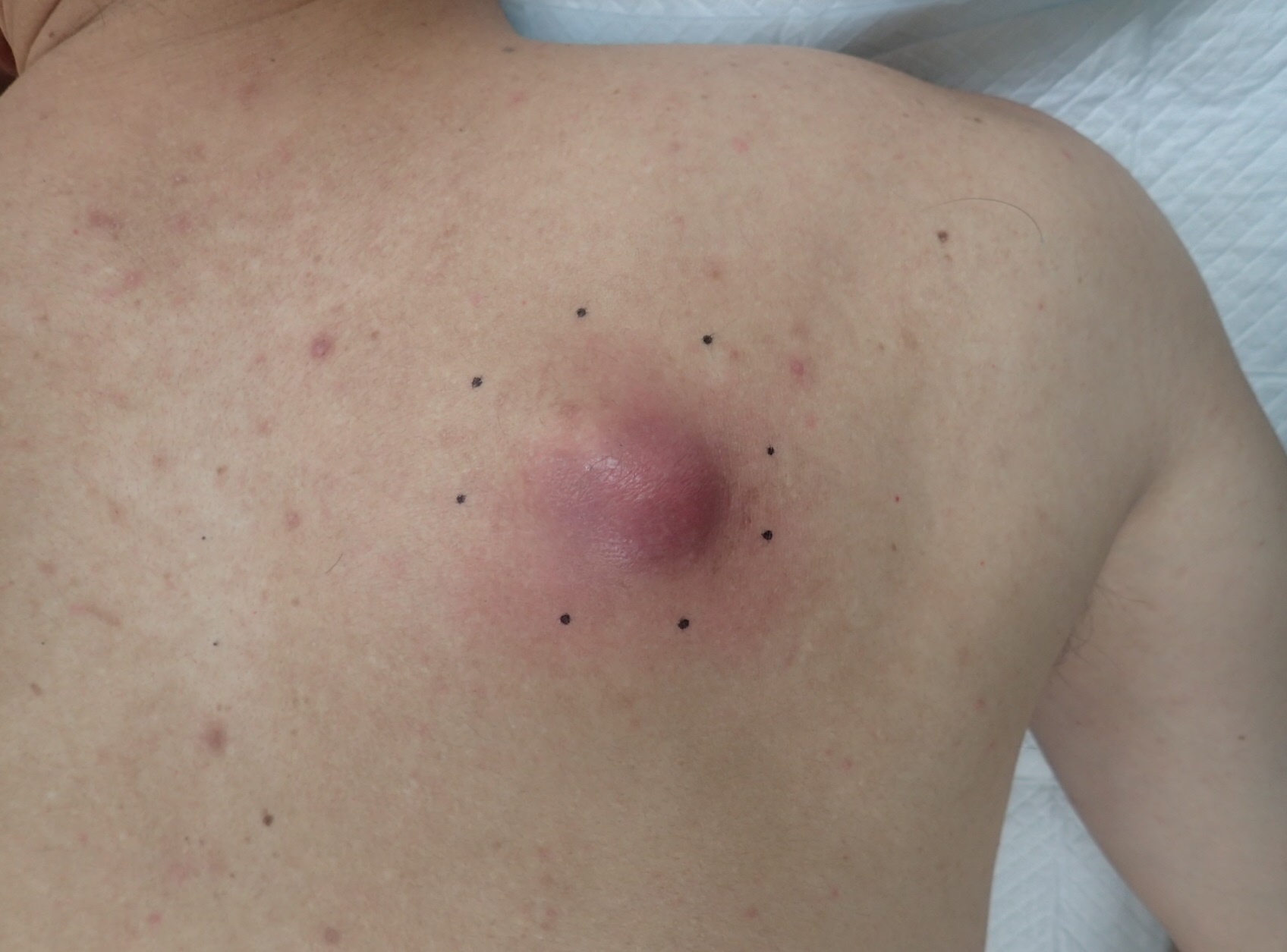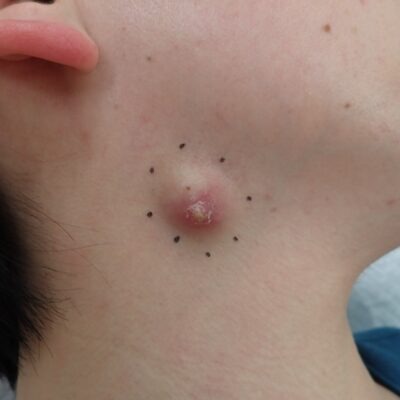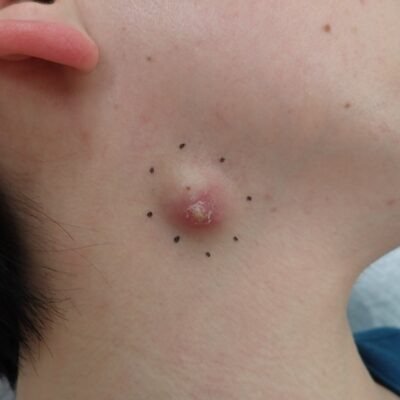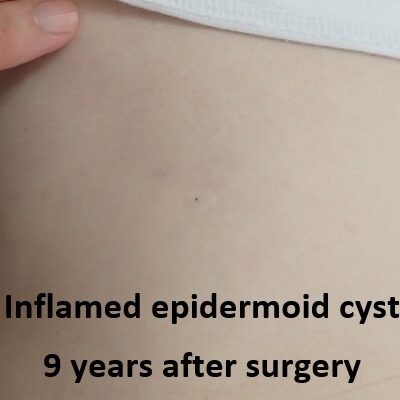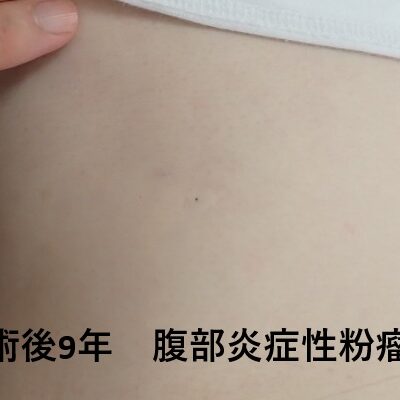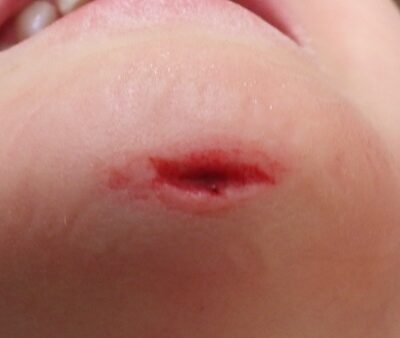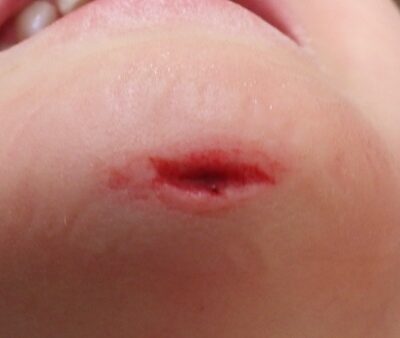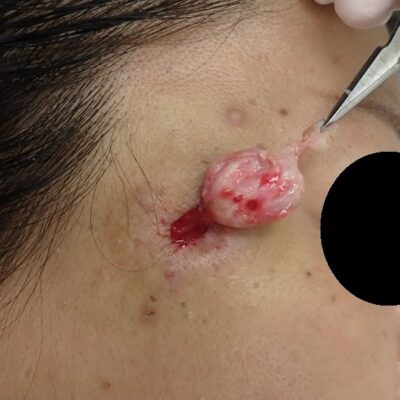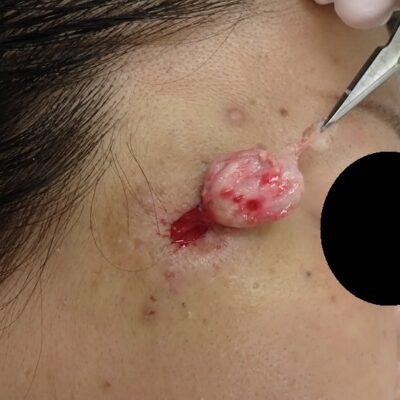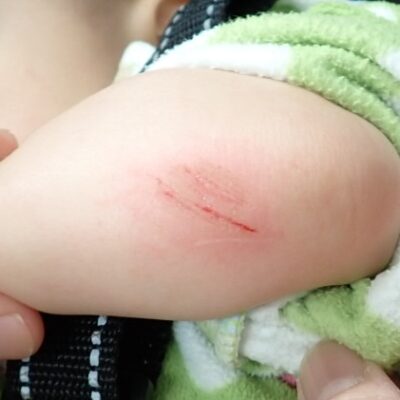Epidermoid Cyst on Neck: Antibiotics Ineffective
— Punch Excision Heals Scarlessly After 5 Years (40s Female Case)
Successfully Treated with Punch Excision –
No Noticeable Scarring Even 5 Years Later (Case of a Woman in Her 40s)
This case involves a woman in her 40s
who developed an atheroma (epidermoid cyst) on her neck.
Although she was initially prescribed antibiotics, they had no effect,
and she ultimately underwent surgery using
the punch excision technique at our clinic.
Even after 5 years, the surgical site remains virtually unnoticeable.
At her follow-up visit, the patient expressed her gratitude,
making this a particularly memorable case.
👤 About the Patient
The patient was a woman in her 40s.
She had noticed a small lump on her neck about a year earlier,
but since it wasn’t painful or inflamed, she initially chose to monitor it.
However, around six months ago, the lump began to gradually increase in size,
prompting her to visit a local dermatology clinic
with the intention of having it surgically removed.
💊 “Antibiotics Should Take Care of It,”
She Was Told…
The doctor at the dermatology clinic informed her:
“This cyst isn’t that big—antibiotics should be enough.”
She was prescribed a one-week course of antibiotics.
However, after completing the medication,
her symptoms had not improved at all. In fact, the swelling had worsened.
Concerned, she did her own research online and discovered our clinic,
which she then visited for surgical treatment.
❗ Why Antibiotics Are Ineffective Against Atheromas
An atheroma is a cyst that forms beneath the skin,
with a sac-like structure that lacks blood vessels.
Because of this, oral antibiotics cannot reach or penetrate the inside of the cyst.
In other words, antibiotics cannot address the root cause of an atheroma.
The only effective treatment is surgical removal of the entire sac.
🩺 Surgery and Postoperative Course
We performed a punch excision to remove the cyst.
Postoperatively,
we used the Natsui-style moist wound healing technique,
which involves:
・No disinfection or antiseptics
・No prescription of antibiotics
・Daily showers and bathing allowed immediately
・Minimal interference with daily life
The wound healed cleanly in about three weeks.
📸 Follow-up Visit Five Years Later
About five years later, the patient returned to our clinic
due to a newly developed cyst in a different location.
During that visit, we were able to photograph
the original surgical site on her neck.
She remarked:
“I can’t even tell where the surgery was done.
It healed so beautifully—thank you so much!”
The new cyst was also removed using the punch excision method,
and it healed just as cleanly.
✅ Summary
・Antibiotics are ineffective in treating atheromas (epidermoid cysts)
・Surgical removal using punch excision combined with
moist wound care is highly effective and leaves minimal scarring
・Even after five years, the surgical site was barely noticeable,
impressing the patient
If you are struggling with a similar condition,
we encourage you to consider surgical treatment early.
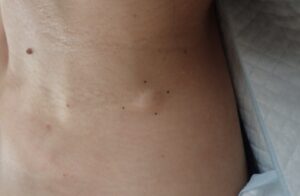
Preoperative state of a neck epidermoid cyst. Antibiotics prescribed at another clinic were ineffective, and surgical excision was selected.
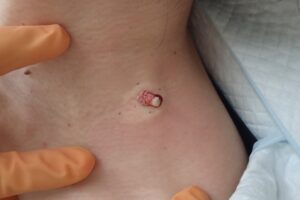
Surgical image of a neck cyst during punch excision. The cyst wall (capsule) is being carefully extracted after the contents were removed.
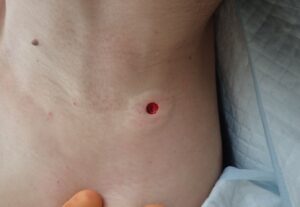
Post-op image of neck epidermoid cyst. The lesion was removed via punch excision with very little bleeding.
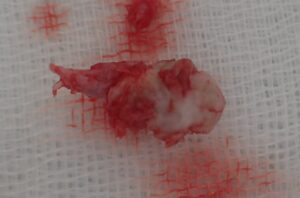
Excised cyst capsule of a neck epidermoid cyst, successfully removed intact using the punch technique.
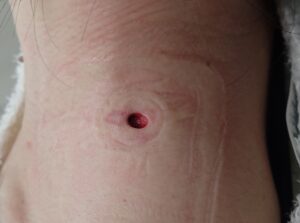
Postoperative day 1 after punch excision of an epidermoid cyst. No swelling, bleeding, or signs of infection are observed.
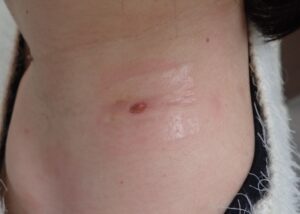
Day 4 after punch excision of an epidermoid cyst. No signs of swelling, bleeding, infection, or pain. Healing is progressing smoothly.
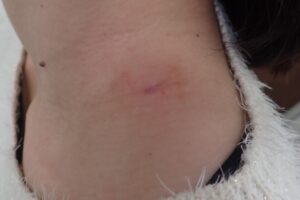
Day 19 after punch excision of an epidermoid cyst. No signs of swelling, bleeding, or infection. The wound is almost fully healed.
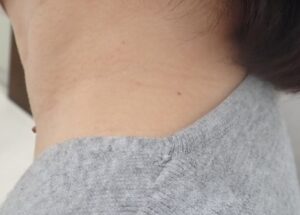
Five years after punch excision of an epidermoid cyst. No signs of recurrence or discomfort. The scar is nearly invisible.
❓ Frequently Asked Questions (FAQ) About Atheromas
Q1. What is an atheroma (epidermoid cyst)?
An atheroma is a benign, sac-like tumor under the skin
that contains sebum and keratin.
It rarely disappears on its own and may become inflamed,
leading to swelling, pain, or pus.
Q2. Can atheromas heal on their own?
No. They may shrink temporarily,
but the capsule remains and often causes recurrence.
Surgical removal is required to prevent recurrence.
Q3. Can surgery be done during inflammation?
Yes. While some clinics may advise waiting,
we can perform the punch excision even during inflammation.
In fact, early surgery often helps reduce pain and swelling faster.
Q4. Are antibiotics effective for inflamed atheromas?
No. Inflammation occurs inside the capsule,
which lacks blood flow, so antibiotics are ineffective.
Complete surgical removal of the capsule is necessary at our clinic,
as antibiotics cannot reach the cyst interior.
Q5. What surgical method is used?
We use the “punch technique” to remove
the entire capsule through a small incision,
minimizing scarring and pain.
Q6. What is the postoperative care like?
We use the Natsui-Style Moist Wound Healing Method,
which involves:
・No disinfection
・No gauze changes needed
・Shower and bath from the next day
・No antibiotics usually required
Q7. Is recurrence possible after surgery?
If the capsule is fully removed,
recurrence is extremely rare.
We prioritize complete capsule removal during surgery.
Q8. How painful is it after surgery?
Most patients report minimal pain, even in inflamed cases.
Many say, “It hurt much less than I expected.”
Q9. Is it better to operate while the atheroma is still small?
Yes. Smaller cysts are easier to remove,
with less scarring and faster recovery.
Delaying surgery may increase pain and complications.
Q10. Is the surgery covered by health insurance?
Yes. Atheroma surgery is covered under national health insurance.
The out-of-pocket cost may vary depending on
the size and location of the cyst.
🔗 [View All Atheroma Blog Posts]
This article was originally written in Japanese
andprofessionally translated into English.
We appreciate your understanding regarding
any subtle differences in phrasing.

